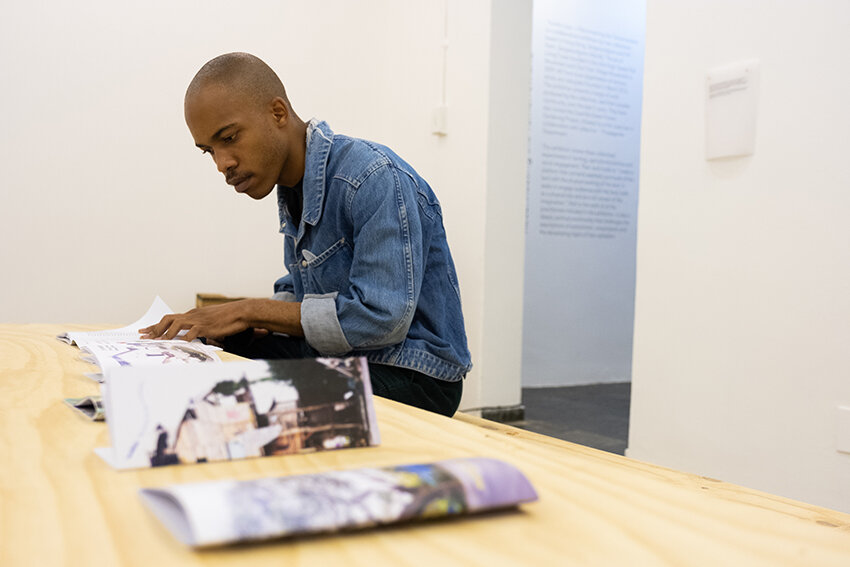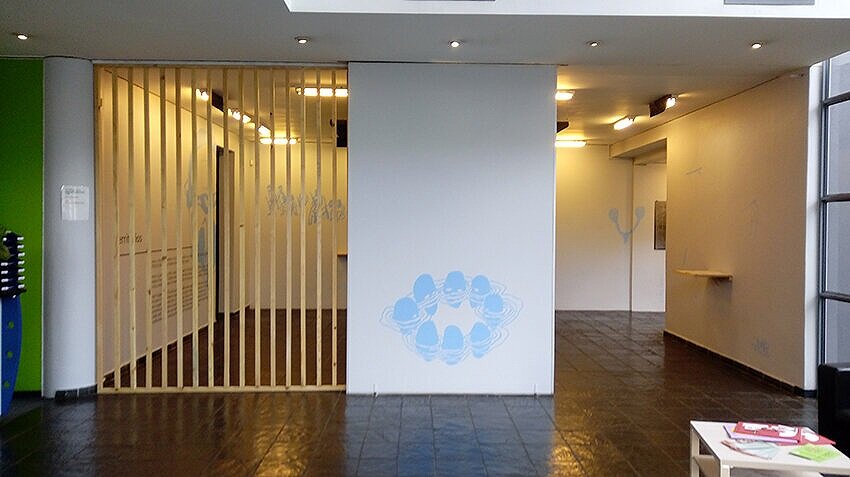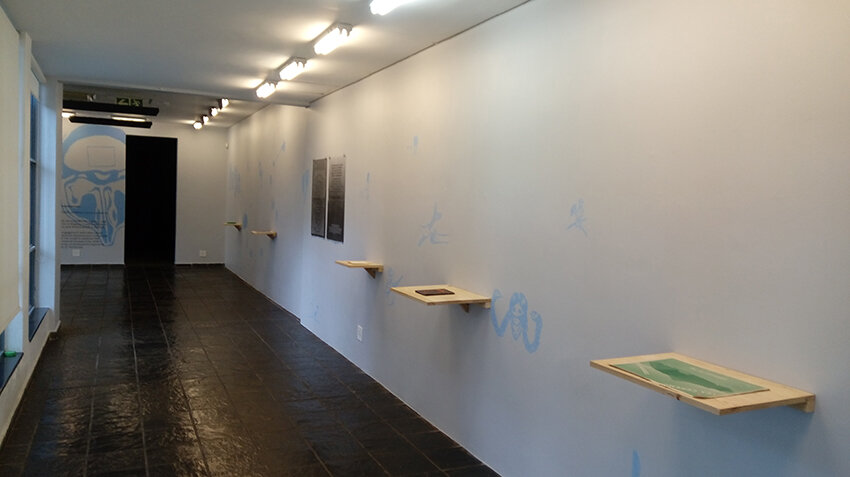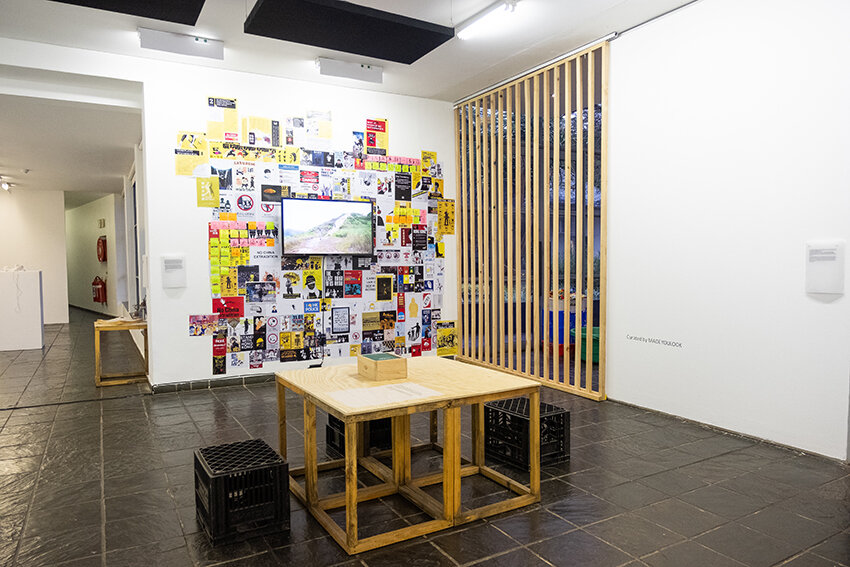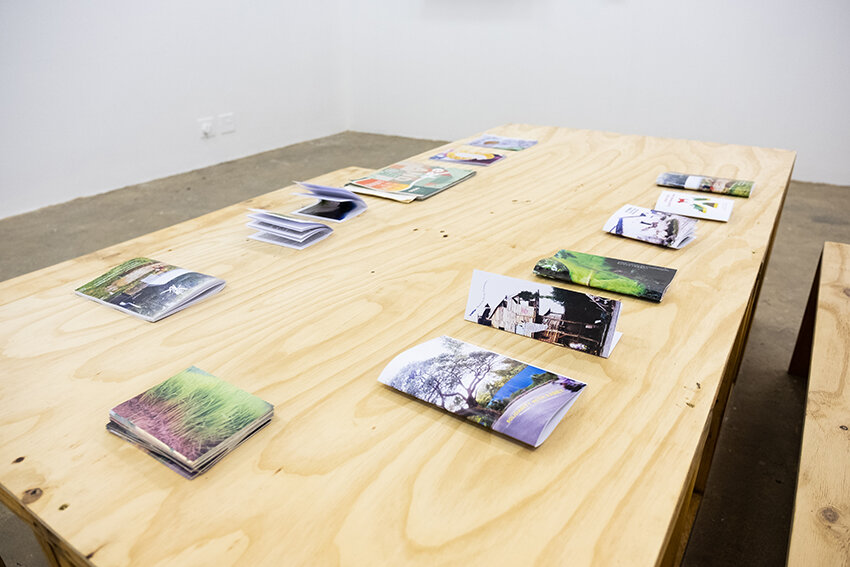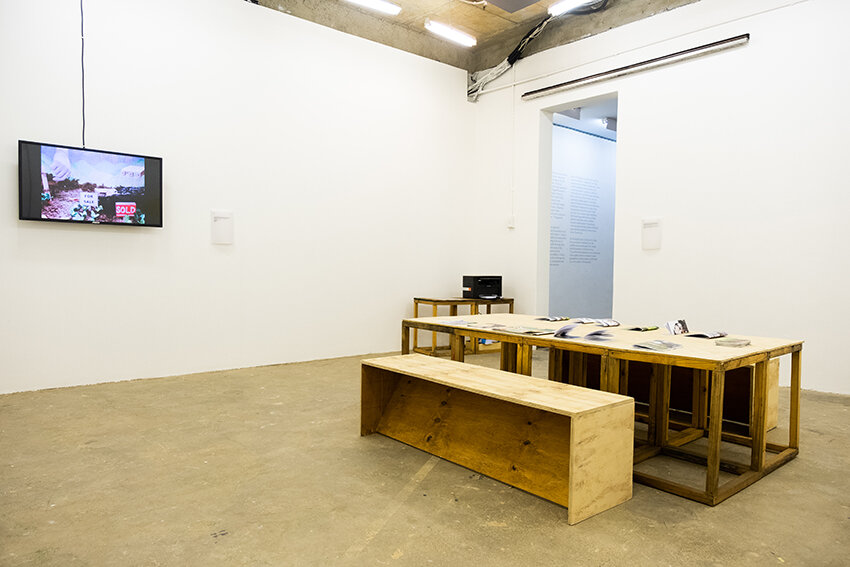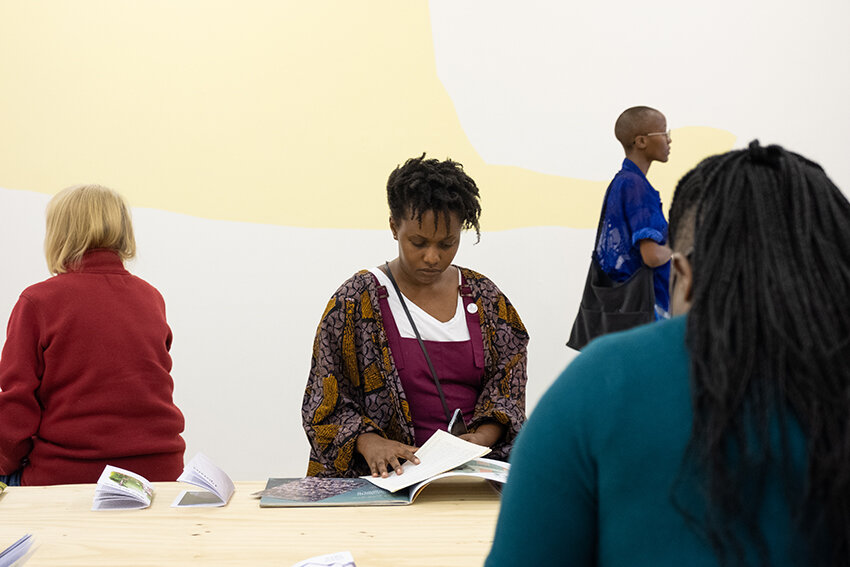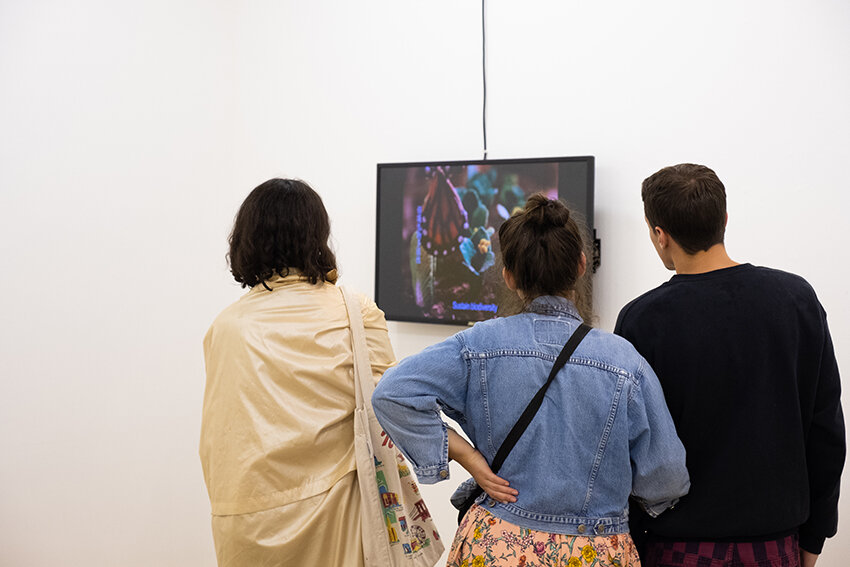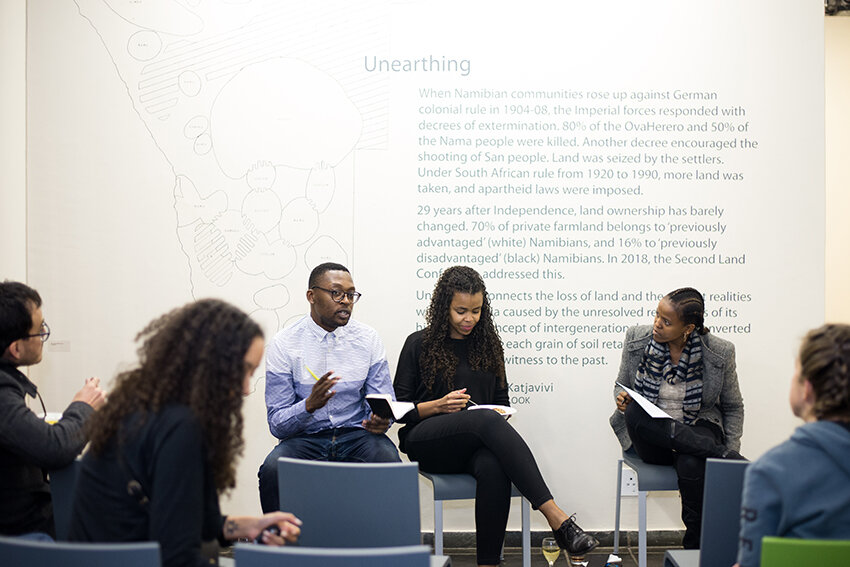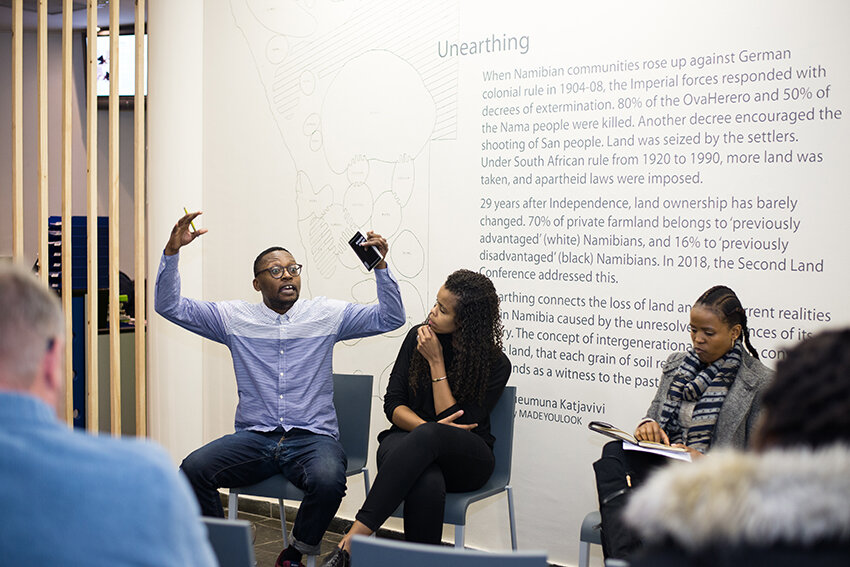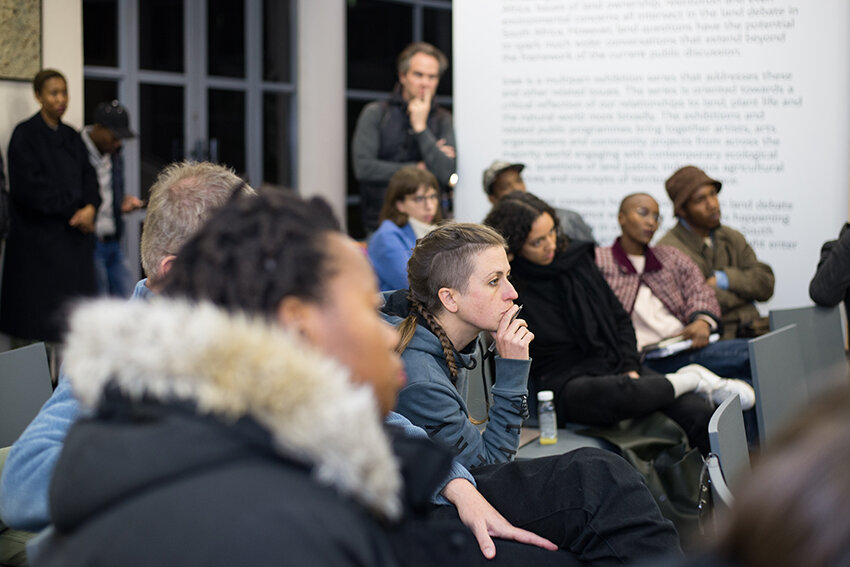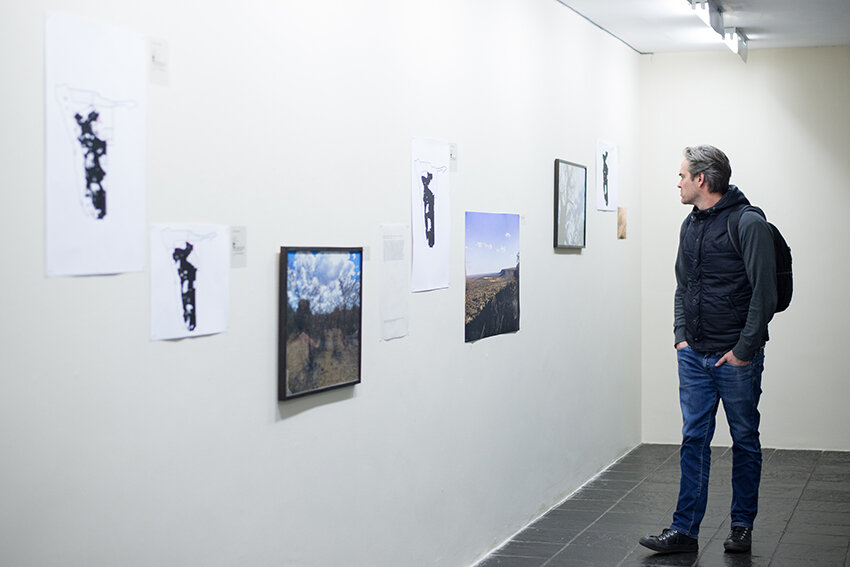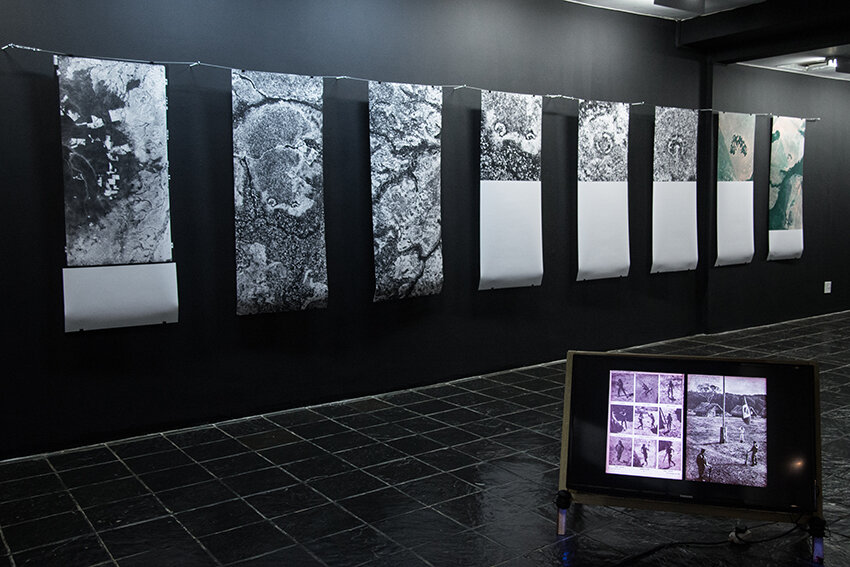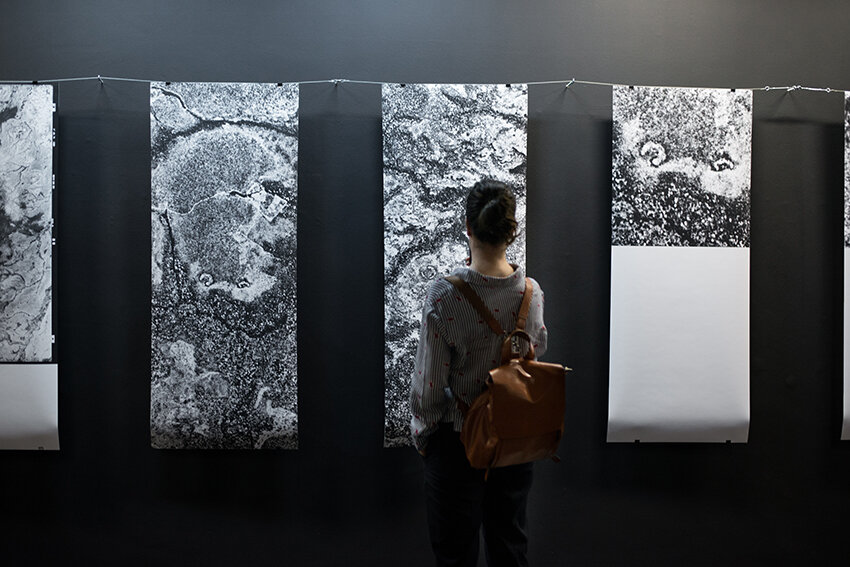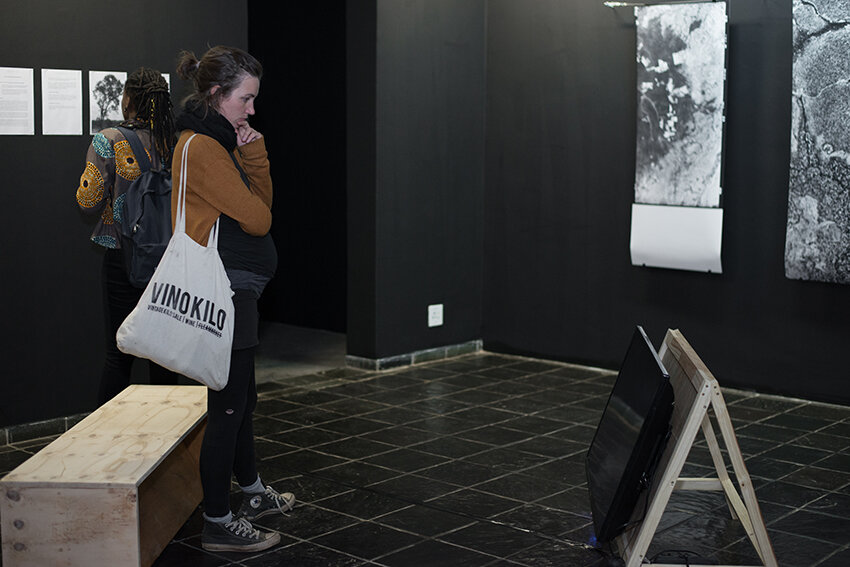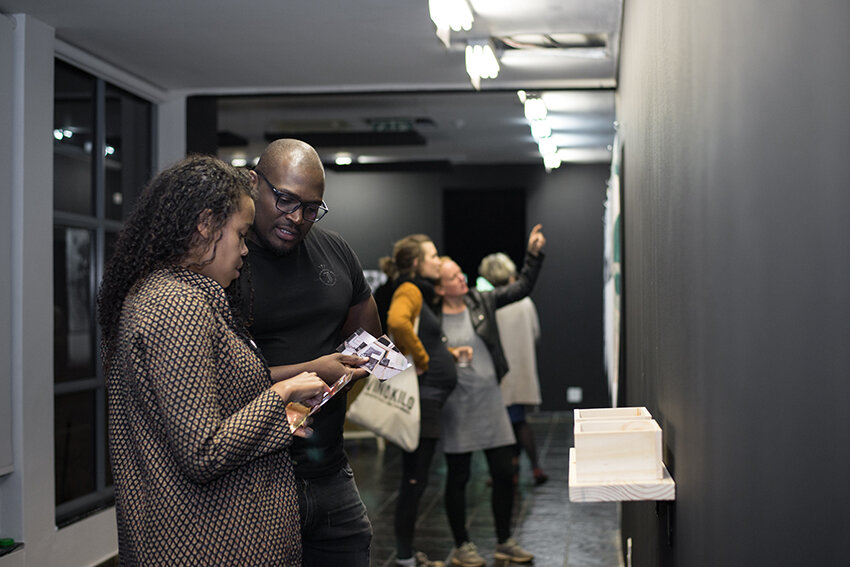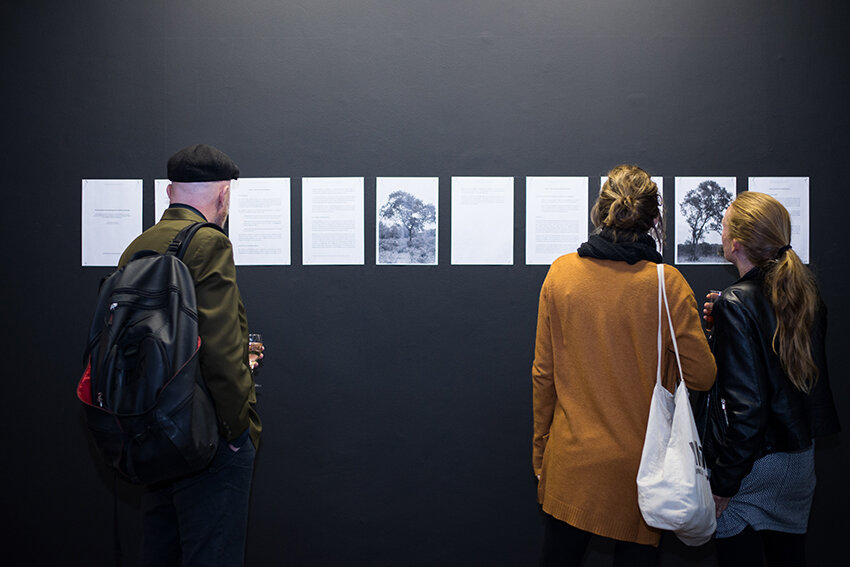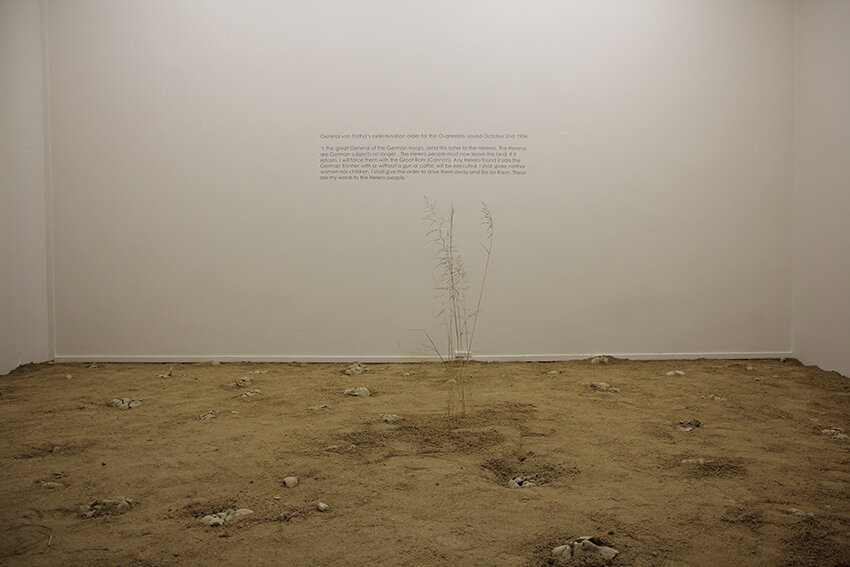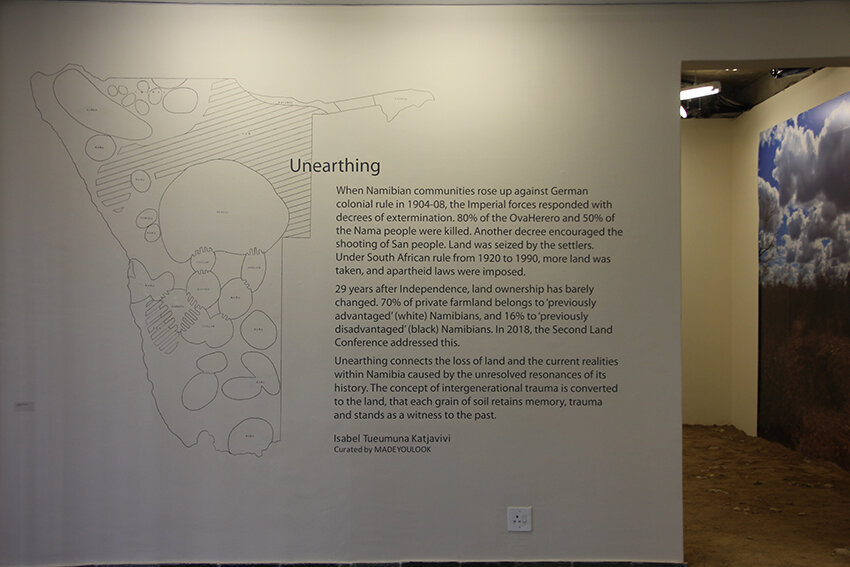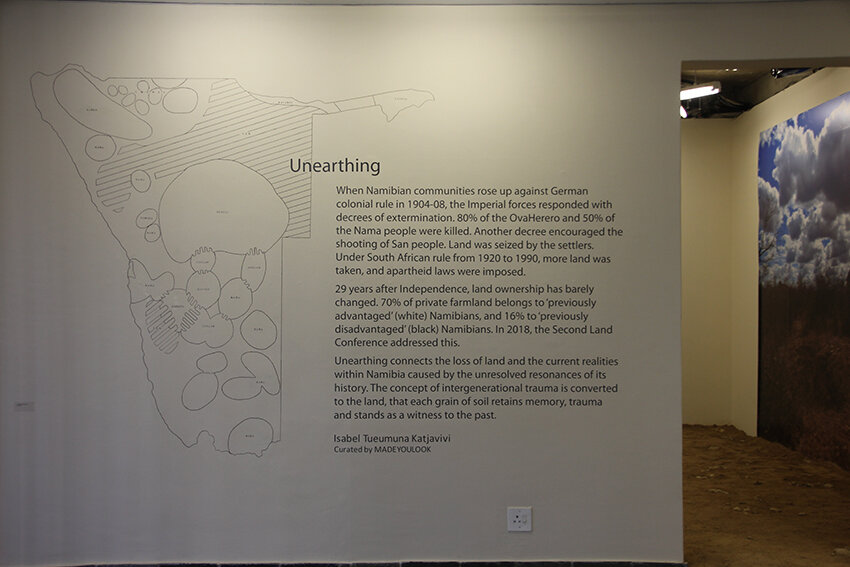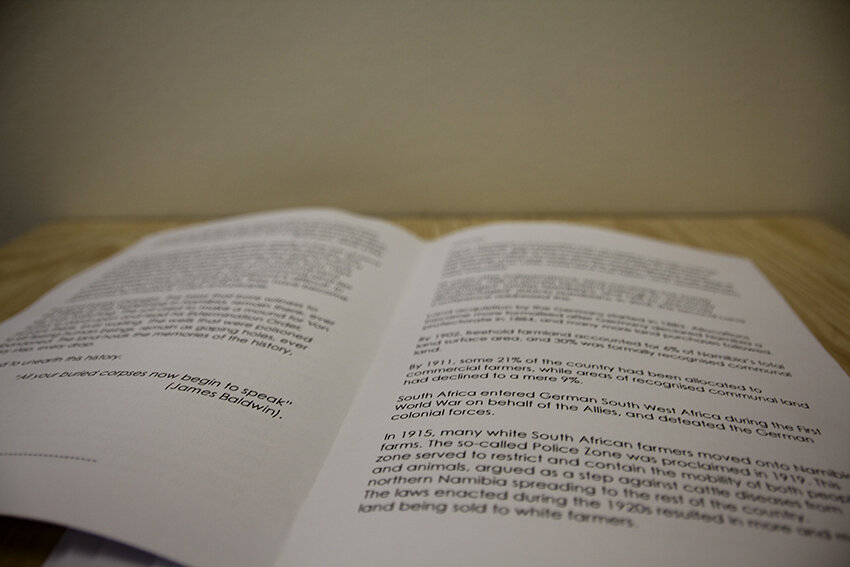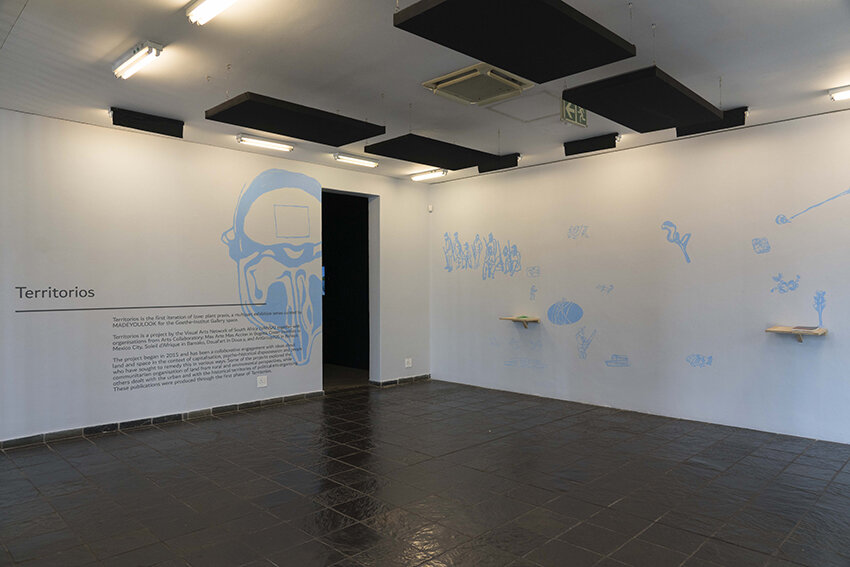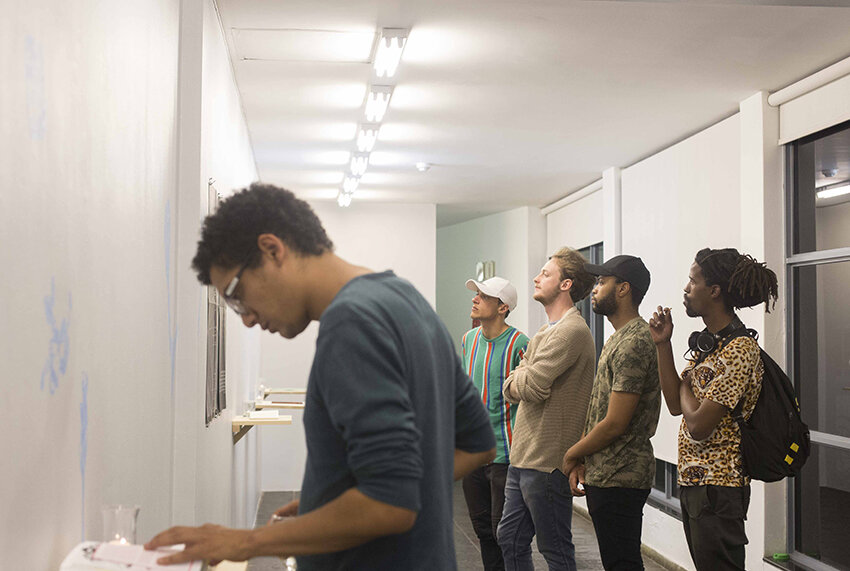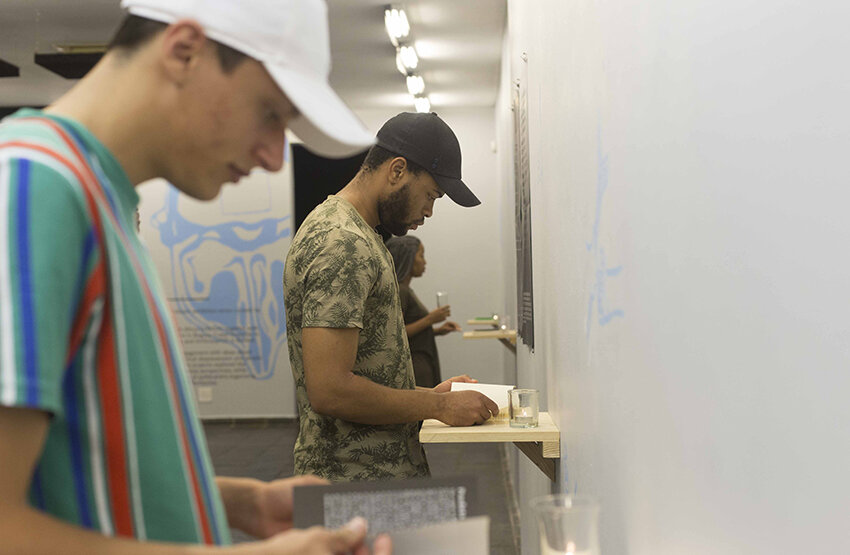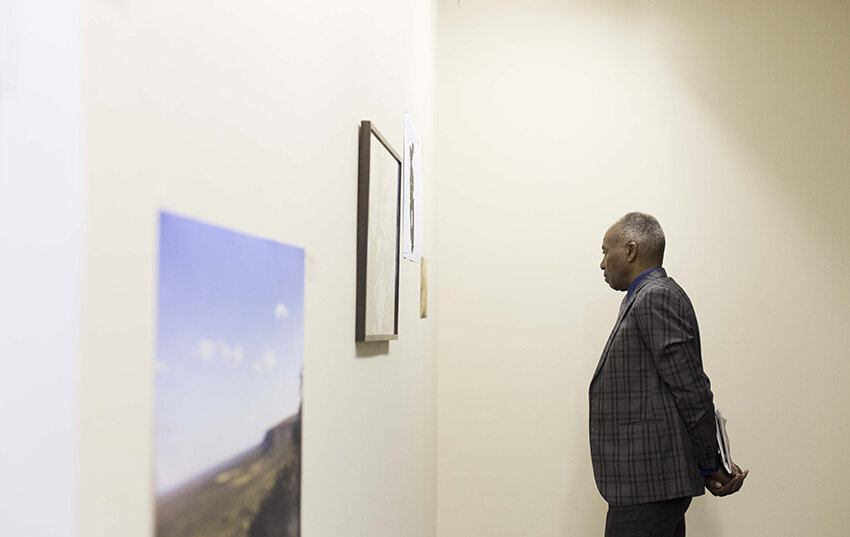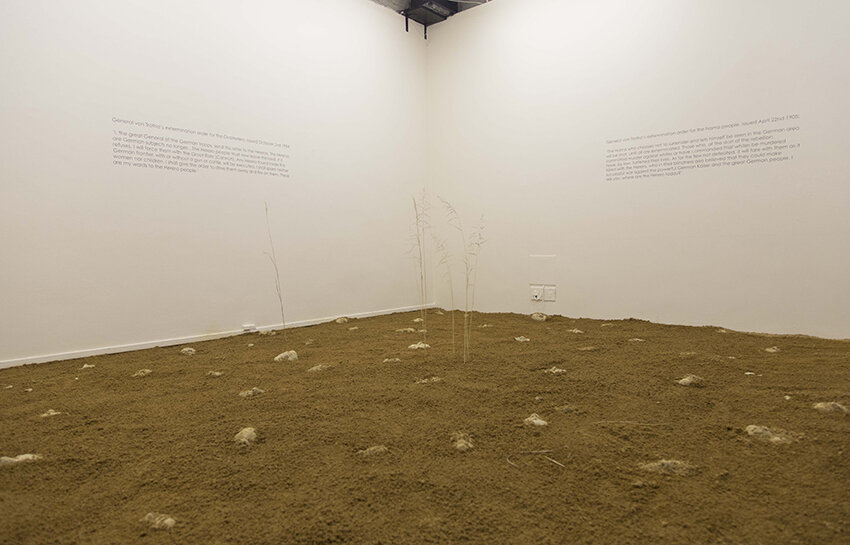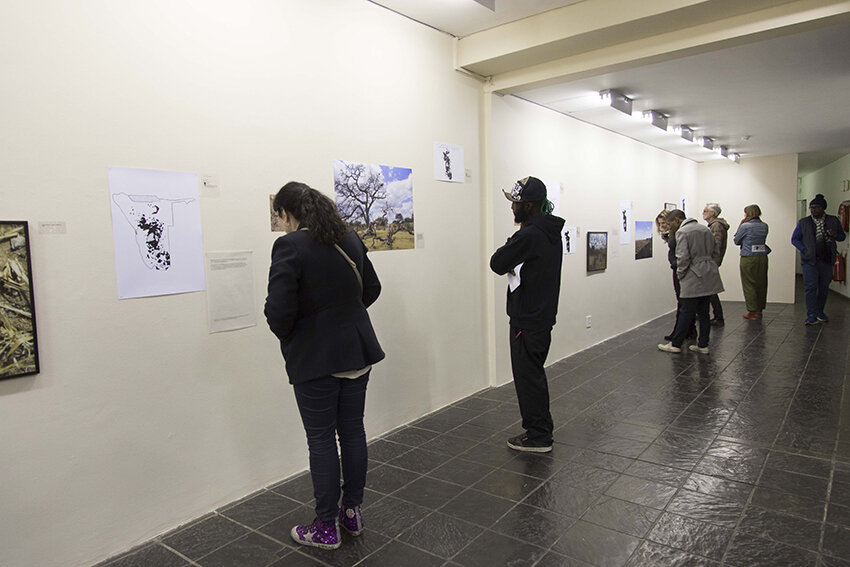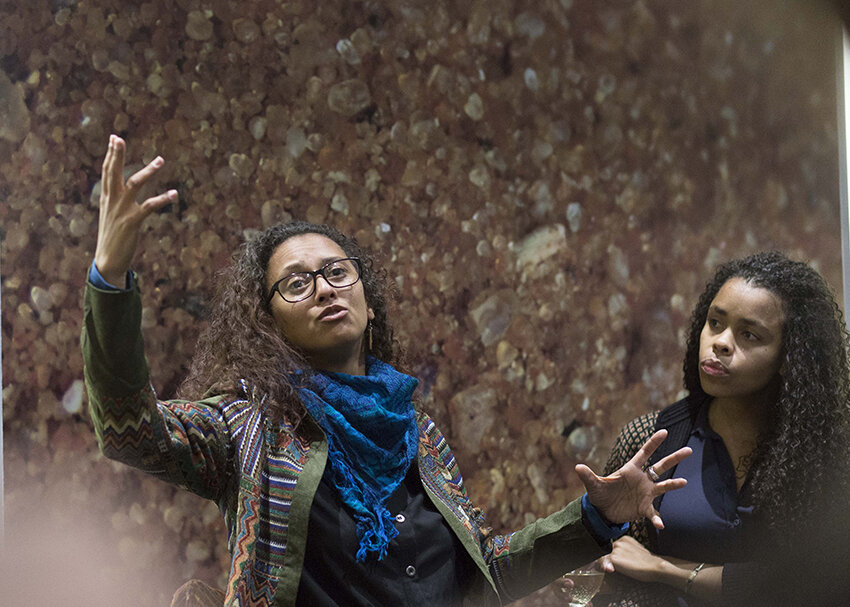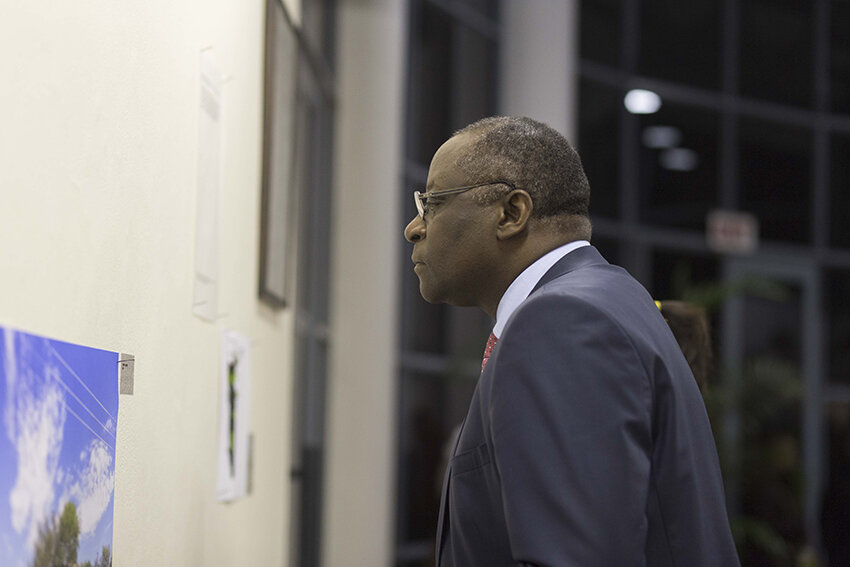Izwe: plant praxis
Izwe: plant praxis is a multipart exhibition series curated by MADEYOULOOK for the Goethe Institut Gallery space, from March 2019 to March 2020. MADEYOULOOK has been considering some of the broader questions of landedness; our relationships to natural life as a trigger or spark for undoing our assumed episteme, and reimagining from the perspective of everyday life. Consequently Izwe: plant praxis brings together practitioners working across the majority world to consider complex questions around land justice in its many manifestations. The Anthropocene, the commons, South Africa’s role in relation to the rest of the continent, our embracing of the neo-liberal order, and our relationships to solidarity movements across the world, all lie dormant in the soil.
images by Masimba Sasa, Earl Abrahams, Shirin Motala
Izwe: Plant Praxis
The land holds memory and meaning, and this is increasingly at the forefront of social discourse in South Africa. Issues of land ownership, restitution and even environmental concerns all intersect in the land debate in South Africa. However, land questions have the potential to spark much wider conversations that extend beyond the framework of the current public discussion.
Izwe is a multipart exhibition series that addresses these and other related issues. The series is oriented towards a critical reflection of our relationships to land, plant life and the natural world more broadly. The exhibitions and related public programmes bring together artists, arts organisations and community projects from across the majority world engaging with contemporary ecological issues, questions of land justice, indigenous agricultural practices, and concepts of territories and place.
Lastly, Izwe considers how the South African land debate might find resonance with similar discussions happening contemporaneously in other contexts, and how South African artists; land activists and practitioners might enter into solidarity with movements across the world.
The following are the exhibitions in the series:
Territorios - VANSA and Arts Collaboratory
Territories is a project by the Visual Arts Network of South Africa together with like-minded organisations from the Arts Collaboratory network: Mas Arte Mas Accion in Bogota, Crater Invertido in Mexico City, Soleil d’Afrique in Bamako, Doul’art in Douala, and ArtGroup705 in Kyrgyzstan. The project explored questions of territory - both rural and urban, for land workers and for artists and resulted in a multi-publication. The project was recently exhibited at the Bolivia Bienale as part of en nuestros pies, la cabeza de la tierra (at our feet, the head of the earth).
In Conversation with Mvuselelo Ngcoya: 24 April 2019
Mvuselelo Ngcoya is a Senior Lecturer at UKZN, with a research focus on Agrarian and Rural Transformations, Indigenous Plants, Indigenous Knowledge Systems, Indigenous Food, and Land Reform. Ngcoya will be in conversation with Molemo Moiloa and Nare Mokgotho of MADEYOULOOK on the sociability of decolonial relationships to plant life and land, and potential learnings from the global south for South Africa’s land debates.
Screening: 16 May 2019
The last event of Territorios screens the videos currently within the exhibition in succession, with accompanying discussion. The films by Tania Ximena and Yollotl Alverado and presented by Crater Invertido, reflect on the psycho-historical context of Mexican land ownership since colonization and the complexities of land restitution in that context, as well as a set of tools on autonomous agrarian organizing in Oaxaca. The videos connect to South African hurdles to progressive restitution and community land management, as well as to potential tools for organising such as Letsema and Kgotla.
Unearthing - Isabel Tueumuna Katjavivi (Namibia)
Isabel Tueumuna Katjavivi explores sites of trauma during the colonial era, and creates a response to commemorate the ancestors. She uses the earth – exploring the soil as an entity that retains memory and stands witness. Unearthing is an extension to Katjavivi’s 2018 exhibition They Tried to Bury Us at the Namibian National Art Gallery, which created a scene of remembrance to those killed in the OvaHerero and Nama Genocides in Namibia. Unearthing includes voices of the descendants, and connects the loss of land and the current realities caused by the unresolved resonances of the genocides. Katjavivi uses the invocation by James Baldwin, that “All your buried corpses now begin to speak” as a call for a reckoning with histories left in the land.
The work engages with issues of trauma that lie in the land and the potentials for healing that are related to the land. The photography basis of her work explores sand and trees as materials that retain memory – in the rings of tree stumps for example. This referencing of the stains and remnants of the German genocide, which resulted in the extermination of 80% of the Nama and Herero populations, engages with a thematic still under-addressed within the Namibian, and even global, discourse. Katjavivi also incorporates oral histories of descendants of those who have been removed from their ancestral lands, voicing the complexities of death, belonging and identity that remain within the sand.
Grave matters Public Discussion: 10 July 2019
To accompany Unearthing by Isavel Tueumuna Katjavivi, Dineo Skosana will be in conversation with Molemo Moiloa and Nare Nokgotho of MADEYOULOOK on the role of ancestral remains and graves as material evidence of a history entangled with narratives of land dispossession and restoration in South Africa. The discussion will consider ancestral remains as a way of thinking through issues at the intersections of the current land debate and notions of citizenship, identity and belonging.
Trees, Vines, Palms and Other Architectural Monuments - Paulo Tavares (Brazil)
From the early 1950s to the late 1960s, the A’uwe - Xavante people, an indigenous nation of Brazilian Amazon was subjected to a brutal land dispossession and forced removals to open space for giant cattle farms and soy plantation. The campaign was part of a strategy of territorial colonisation that the Brazilian military described as “occupying demographic voids.”
In 1966 the A’uwe of Marãiwatséde were deported from their ancestral land in an operation led by the Brazilian Air Force. In 1974, the State Indigenous Agency (FUNAI) emitted a certificate attesting that this territory wasn’t indigenous land anymore.
In collaboration with the Bö’u Xavante Association of Marãiwatséde, a team led by architect Paulo Tavares conducted a forensic analysis of the sites, mapping and surveying their ancient villages and cemeteries in order to provide evidence of their ancestral possession of this territory.
The sites studied display very similar feature in that a patch of vegetation had grown precisely in the arc-like shape of the ancient village. Made of a combination between medium and large trees, palms and other types of plants and vines, these botanic formations contain certain species that are associates with Xavante traditional occupation and land managing systems.
Reading Group: 19 October 10am-1pm
Trees, Vines, Palms and Other Architectural Monuments by Paulo Tavares, in collaboration with the Bö’u Xavante Association probes the relationships between natural and cultural landscapes as they are categorised by colonial-modern epistemes in Brazil. The outdoor reading group is a morning in which we consider forms of plant socialities in our context. Join us for a reading session, collective meal and conversation.
Parallel Lives — Reconnecting the Tomorrow Land - Sangwoodgoon and Hong Kong Farm (Hong Kong)
Parallel Lives — Reconnecting the Tomorrowland is a collaborative exhibition by two collectives based in Hong Kong, Sangwoodgoon and HK Farm. Sangwoodgoon (literally “House of Living”) was founded in the Anti-High Speed Rail Movement and Choi Yuen Village Movement in 2009. HK Farm is an organisation of farmers, artists and designers founded in March 2012. The exhibition presents a range of work produced by the collectives, and their broader community, over the past 5 years. They have also invited the Guerrilla Sweet Potato Gardening Project, initiated by artist June Lee in collaboration with collective ● ● Propaganda Department.
This exhibition shares these collectives’ experiments in farming, agricultural practice and social engagement. Their work looks to “create a platform that connects aesthetic portrayals of the land with the physical working of the land. It seeks to engage audiences with the land, both as a physical site and as a rich terrain of the imagination.” Vital to the work of all the practitioners included in this exhibition, is also a deeply political positionality that challenges the assumptions of extractivism, consumption and the devastating logics of late-capitalism.
Food Share with the Reimagined Learning Centre: 14 March 2020
The final closing event of Izwe: Plant Praxis will be held as part of the 4th exhibition in the series, Parallel lives by Hong Kong based collectives Sangwoodgoon and HK Farm (on at Goethe Institut until 20 March). In the tradition of Sangwoodgoon, we will host a collective meal on 14 March 2020. All are welcome and should bring a dish to share. Food will also be provided by local urban farmers and growers including foraged salads, indigenous greens, and many more.
Video by Mdumisi Nxele for Goethe Institut Johannesburg


